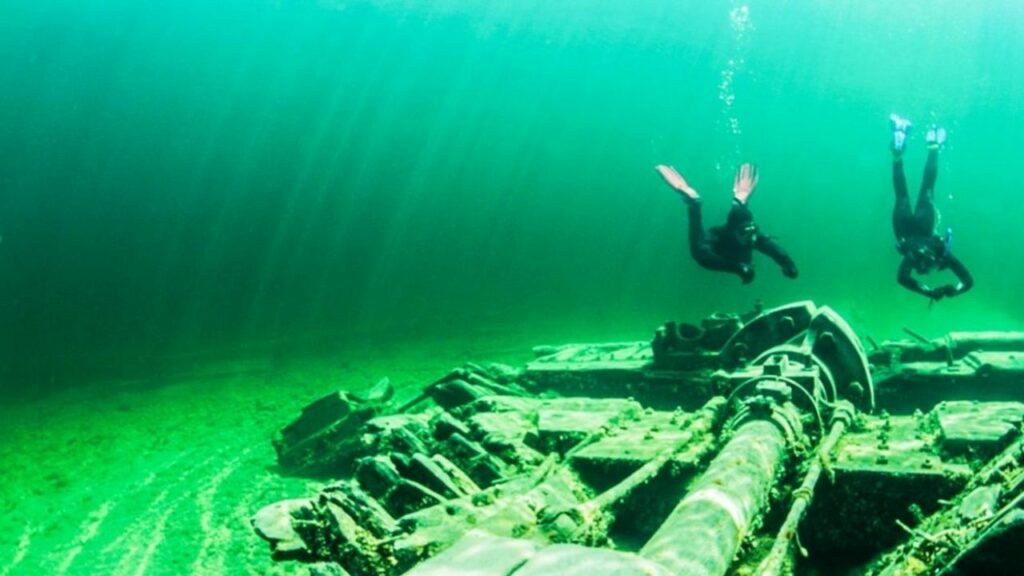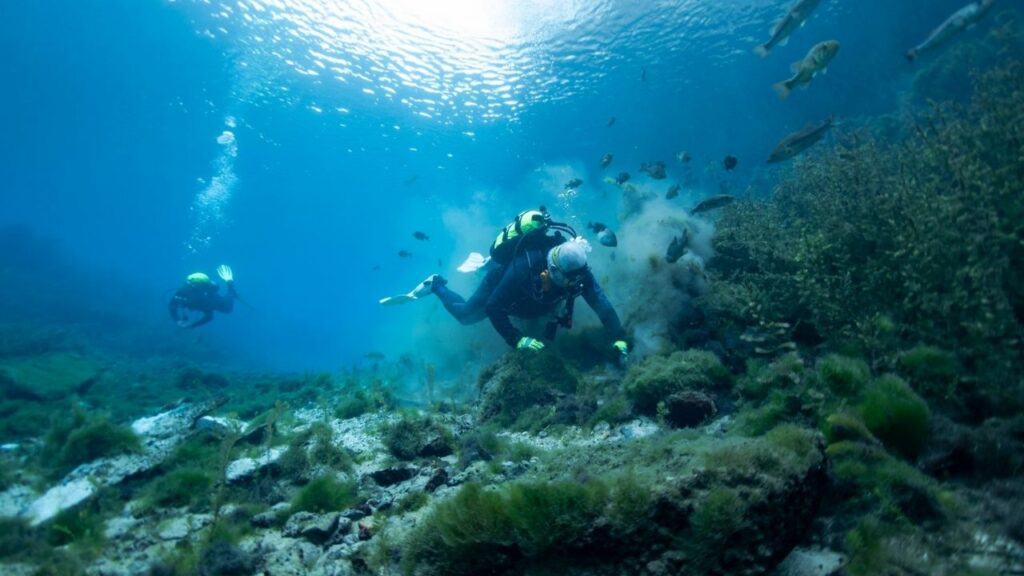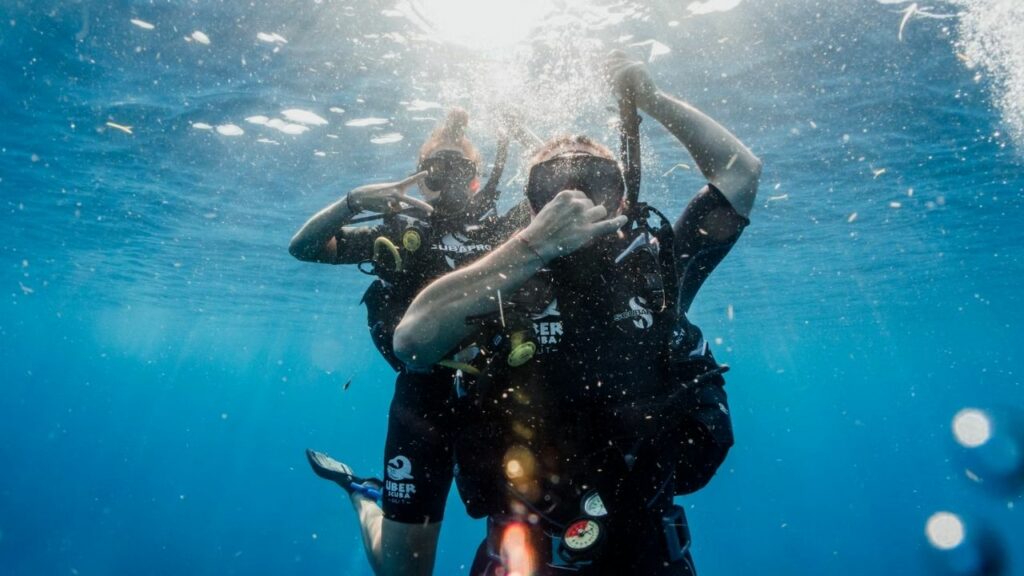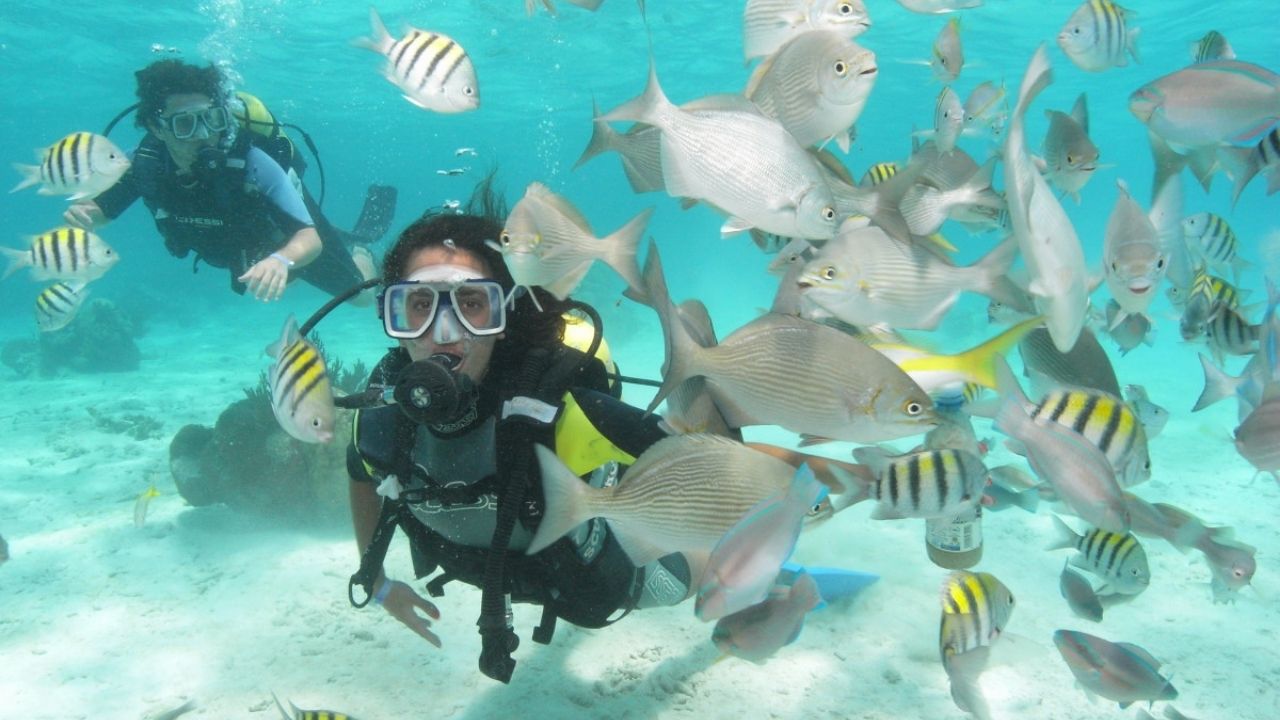Scuba diving is a magical adventure unlike any other. The breathtaking underwater paradise of the marine world is sure to satisfy even the biggest adrenaline junkie. That said, it can be dangerous if you aren’t careful.
Vibrant marine creatures and habitats bring a dynamic ecosystem. You can only prepare for so many situations, even in shallow depths. From thermal stress and heat loss to bodily fatigue from alcohol and lack of sleep, there are countless potential complications that could tire you out.
The sheer hydrostatic pressure underwater is enough to leave you with a physiological impact for some time. Don’t get me wrong, it’s well worth the inherent risks. You just gotta come prepared.
What is diver fatigue? Is it normal to be exhausted?
Diver fatigue is completely normal. Here are all the factors to watch out for.
- Accumulation of CO2: It’s the biggest cause of post-dive fatigue since carbon dioxide is considered acid at high concentrations. This buildup can throw our bodies into respiratory alkalosis – heavy breathing and hyperventilation. Now, over-breathing is a defense mechanism at high altitudes because of low oxygen concentration.
But it’s a massive problem underwater. With O2 percentages as high as 21% in your air tank, over-breathing can cause oxygen exposure and all the problems that come with it. - Water Temperature: Water conducts heat off your body almost 20 times faster than air. This forces your body to burn energy at an increased rate to keep you warm.
- Decompression Stress (DCS): It’s one of the biggest and most common post-dive problems you should be wary of.
- Energy Expenditure: You’re burning energy faster underwater, so any unnecessary movement can unknowingly contribute to it.
- Anxiety and Stress: Yes. We burn/waste more energy when we’re anxious or under stress. Make sure you remain calm and with your guide at all times.
How does diving affect the body?
The build-up of carbon dioxide (CO2) can raise red flags in many different ways. Still, the most prominent one is decompression sickness or decompression stress.
Every individual’s body gets rid of CO2 in its own way and pace. The rate at which you remove excess CO2 can affect oxygen and nitrogen levels in your blood.
With the sudden pressure changes outside, your body will try to equalize internal pressure. This, in turn, leads to heavy breathing and hyperventilation and even increased blood volume to get rid of excess pressure.
In layman’s terms, it’s not technically a sickness but the stress on your body due to sudden changes in external and internal pressure. And that’s how you get a case of “diver’s fatigue.”

1. What are the symptoms of decompression sickness?
Some of the most common symptoms of clinical DCS (decompression sickness) are fatigue, joint pain, heavy breathing, unusual itch and rashes, coughing blood or frothy sputum, and staggering. In some serious cases, tremors and amnesia are a part of it too.
These symptoms usually appear 15 mins to a couple hours after resurfacing. However, they can potentially appear upto 12 hours after coming up.
2. How long does decompression sickness last?
Minor decompression sickness symptoms only last a couple hours after good rest and over-the-counter pain pills. Mild symptoms usually last upto 48 hours, but serious cases can have long-term repercussions.
You should refrain from diving for atleast two weeks after minor to mild DCS symptoms.
3. How to avoid decompression sickness?
The treatment for decompression sickness is a recompression procedure. You should make your best efforts to avoid such a scenario.
- Plan your dive as per your skills: When it comes to scuba diving, the trick is to never overexert yourself. Use a reliable dive computer and stick to pre-planned depths within the pre-planned time limit.
- Plan your underwater time carefully: You can minimize your trips to the surface and save some ascent/descent trips if you stick to a proper plan.
Remember, your body CAN successfully acclimate to the pressure changes if you don’t rush up and down at short intervals.
4. Does nitrox have any effect?
Nitrox doesn’t affect your dive from a scientific point of view. The popular opinion says that diving with Enriched Air (Nitrox), with an increase in oxygen concentration, can help reduce post-dive tiredness.
While many divers choose to believe and follow the same, multiple peer-reviewed articles have found no proof or connection whatsoever. Diver Alert Network (DAN) even called it an application of the “placebo effect.”

That said, professionals recommend using Nitrox for as many recreational scuba dives as possible. Nitrox has no negative side effects and is often linked with reducing decompression stress on your body. In short, it’s a win-win situation.
What to do before scuba diving?
As I said, scuba is an exhausting sport, hence the fatigue. But there are ways to counter most, if not all, of the bad aftereffects. Here are some points you should remember before every diving trip.
- Don’t dive unless you’re well rested. Get a good night’s sleep and be relaxed before the dive. Activities like gym and workouts are off-limits, so you don’t get tired.
- Have a light but energetic breakfast before the dive. You can eat fruits like bananas, or maybe some cereal and oatmeal.
- Keep yourself hydrated in small amounts and at various intervals. Drinking too much too quickly is uncomfortable underwater.
- Don’t dive above your skill level. Choose easy spots if you’re a beginner. Stick to shallow waters and gather lots of experience.
- Pay attention to your guide, and do not panic no matter what happens.
- Be aware of the weather conditions around you. Choose the exposure suit based on the environment and water temperature. And most importantly, don’t forget to use sunblock.
How to feel better after scuba diving?
Now that you know what to do before scuba let’s look at the things you should do after it. I have prepared a list of DOs and DON’Ts for you to remember.
1. What should you do after scuba diving?
- DO take proper rest: You gotta rest properly after a dive, especially a decompression one. A light massage to help those sore muscles and exhausted body should do the trick.
- DO hydrate yourself: This one should go without an explanation, as dehydration is a common cause of decompression sickness.
- DO replenish your energy: Your first order of business after a light massage should be to eat up properly. Since you’re asked to eat super light before diving, you’ll be famished right after.
2. What should you avoid doing after scuba diving?
- DON’T drink alcohol: Drinking alcohol will further dehydrate you and should be avoided after scuba diving. It also affects how the body excretes excess nitrogen from the blood. The general rule is to limit alcohol consumption to a glass or two after a couple of hours.
- DON’T go to a high altitude: Avoid changing your distance from the ground too quickly. After diving deep underwater, going up in the atmosphere for flying or skydiving can affect your body. The pressure in an airplane cabin can also increase the risk of decompression sickness. You should wait 18-24 hours before flying or climbing a mountain after a decompression dive.
- DON’T relax with a strong massage or hot bath: I know I asked you to rest after diving, but these two are the worst ways to do so due to bubble formation. A hot spring bath or deep tissue massage can form nitrogen bubbles in the blood, leading to joint pain. You should wait a couple of hours before massage and let your body return to normal.

What to do when you get tired during diving?
Scuba diving can quickly go from fun to scary if you get tired underwater. Signal your fellow divers and safely end the ride immediately.
Once you reach the surface, follow the steps and rest up. No need to rush. You can always come back for another dive.
Does scuba diving burn calories?
Scuba diving is an intense aerobic workout for your body. You can roughly burn 400 to 700 calories every hour with scuba diving. Though, the exact number depends on water currents, the intensity of the dive, and water temperature.
How many dives does it take to get certified?
To become a certified diver in the U.S., you need a PADI Open Water Diver Certification. You must finish PADI’s academic training and complete five confined and four open water dives to get the certificate.
Confined water dives are done in areas with access to shallow water, such as a swimming pool or a lake/ocean with a confined area.

